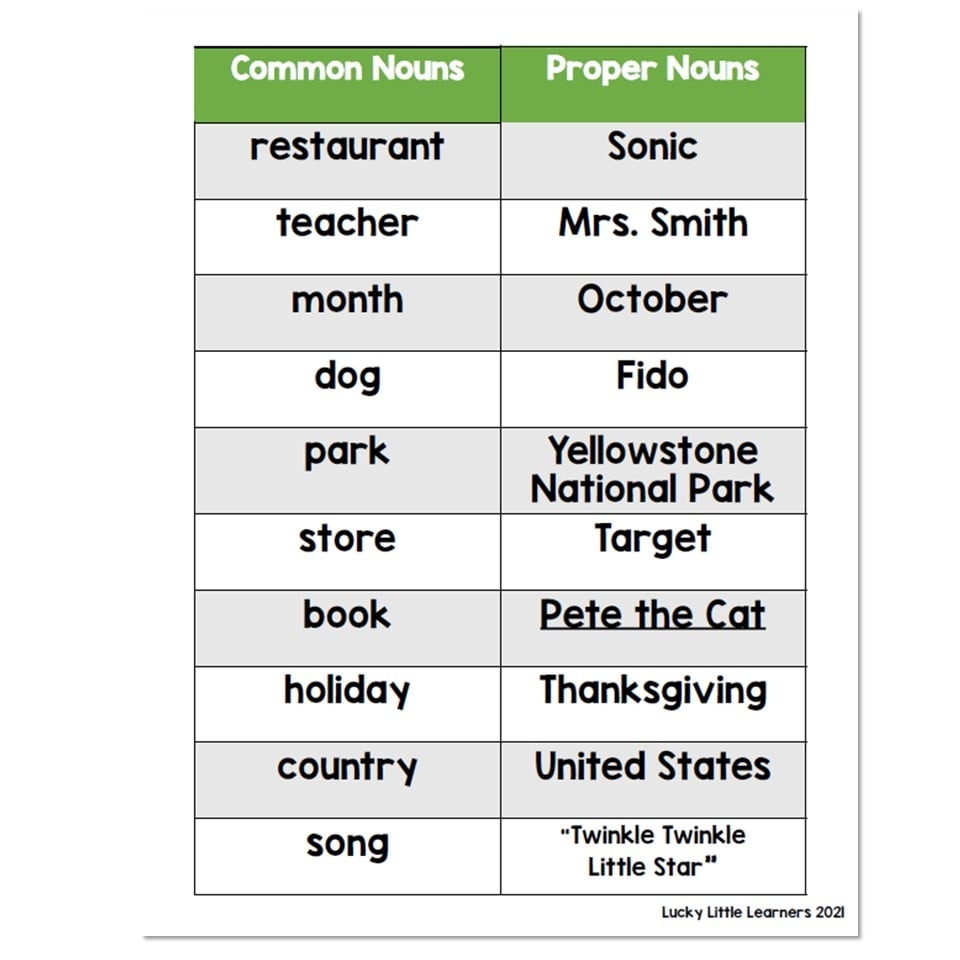When it comes to the English language, nouns play a crucial role in forming sentences and conveying meaning. Nouns are words that represent people, places, things, or ideas. There are two main types of nouns: common nouns and proper nouns. While common nouns refer to general people, places, or things, proper nouns are specific and always capitalized.
Common nouns are words like “dog,” “city,” or “book,” which do not require capitalization unless they appear at the beginning of a sentence. On the other hand, proper nouns are names of specific people, places, or things, such as “Buddy,” “New York City,” or “Harry Potter.” Proper nouns help to distinguish one particular entity from others.
Examples of Common and Proper Nouns
Let’s look at some examples to better understand the difference between common and proper nouns. Common nouns include words like “teacher,” “school,” and “car,” while proper nouns are names like “Ms. Smith,” “Harvard University,” and “Toyota Camry.” Common nouns can be used to refer to any teacher, school, or car, whereas proper nouns identify a specific teacher, school, or car.
It is essential to use proper nouns correctly to avoid confusion and clearly communicate information. For instance, if you say, “I visited the park,” it is unclear which park you are referring to. However, if you say, “I visited Central Park,” it becomes evident that you are talking about a specific location in New York City.
In addition to capitalization, proper nouns are often accompanied by articles such as “the,” “a,” or “an.” For example, we say, “I read a book,” using the common noun “book,” but we say, “I read the Harry Potter book,” using the proper noun “Harry Potter” with the article “the.” This distinction helps to indicate the specificity of the noun being referenced.
In conclusion, common and proper nouns serve distinct purposes in the English language by categorizing generic versus specific entities. By understanding the difference between these two types of nouns and using them accurately, we can enhance the clarity and precision of our writing and speech. So, the next time you are constructing a sentence, remember to choose the appropriate noun to convey your message effectively.
